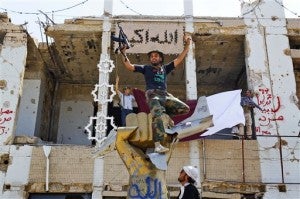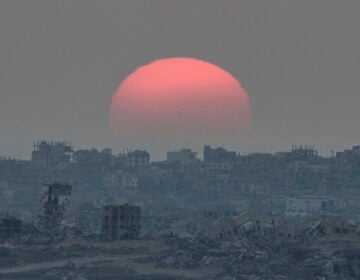Late-summer update on Libya & the Arab Spring
Listen

Hour 1
The 42-year reign of Col. Moammar Qaddafi in Libya appears to be over, or at least under immediate mortal threat, depending on how this week’s surprising storming of Tripoli by the Libyan rebels shakes out. Unlike in Egypt and Tunisia, the despotic regime in Libya did not yield to nonviolent protests, but moved to crush the rebellion with bloody strikes – prompting NATO powers including the U.S. to cite the “responsibility to protect” as a new justification for military intervention. Now, months later, the violent struggle in Libya may be drawing to a close. Meanwhile, official condemnation, including from President Obama, of Syrian forces’ bloody crackdown on nonviolent protesters in that country drew scorn from President Hafez al-Assad. And Egypt’s people-power ouster of President Hosni Mubarak has left his military regime in power and unrest still filling Tahrir Square, even as preparations are underway for the crucial democratic elections, now scheduled for November. Joining us to discuss what’s become of the Arab Spring, in Libya, Syria, Egypt and more,is MICHELE DUNNE, director of the Atlantic Council’s Rafik Hariri Center for the Middle East and former White House and State Department Middle East expert. And we’ll start with an update from ABDERRAHIM FOUKARA, Al Jazeera International’s Washington Bureau Chief.
Listen:
[audio: 082511_100630.mp3]
WHYY is your source for fact-based, in-depth journalism and information. As a nonprofit organization, we rely on financial support from readers like you. Please give today.





